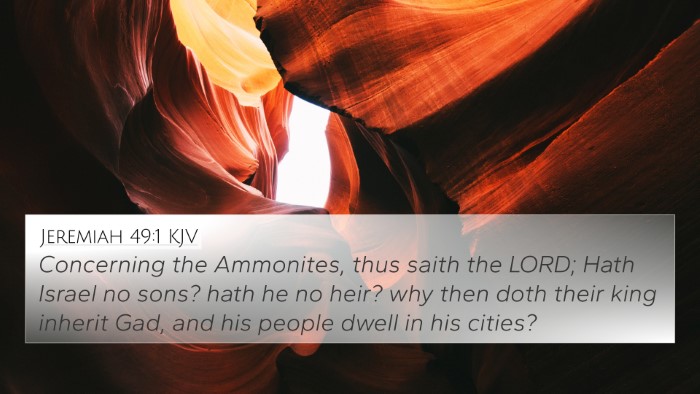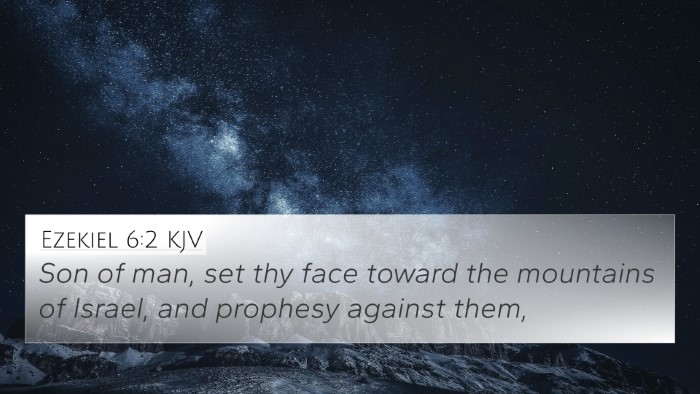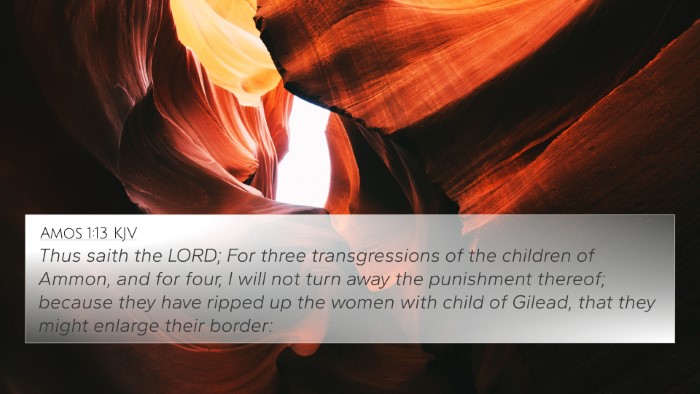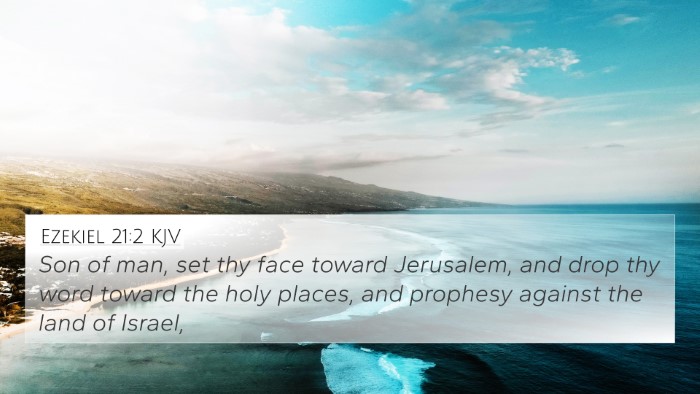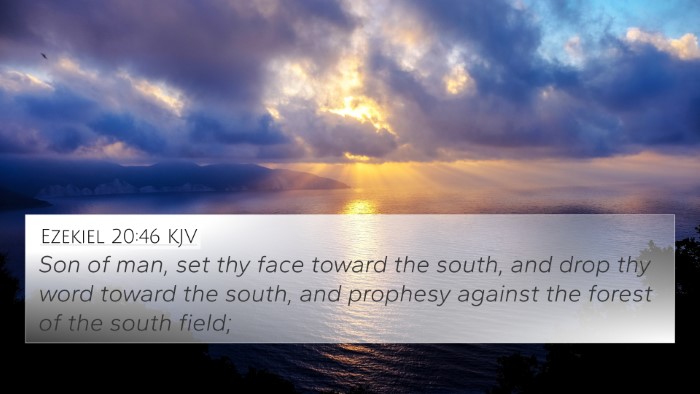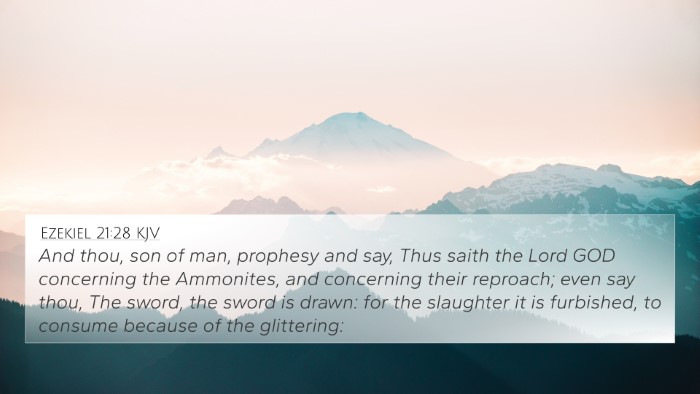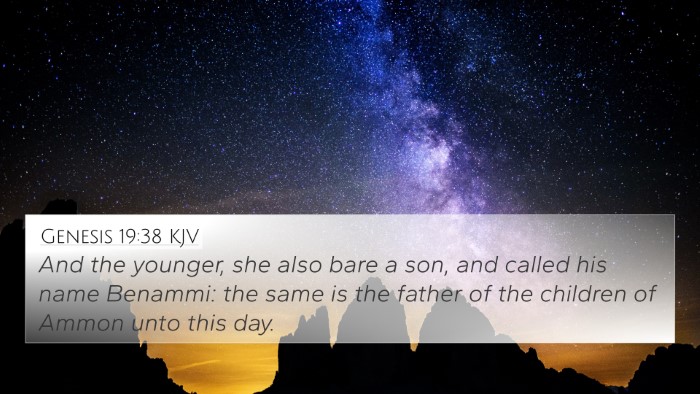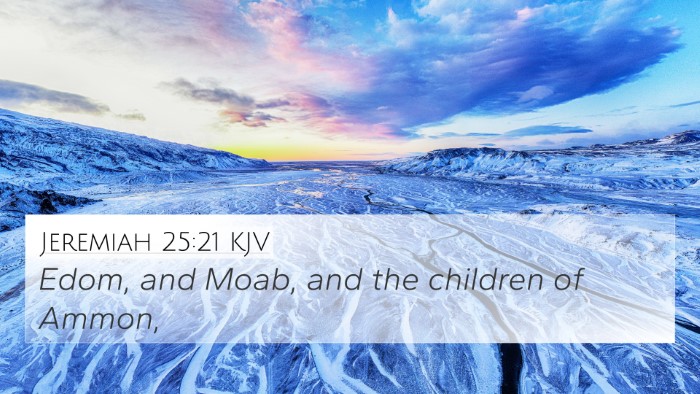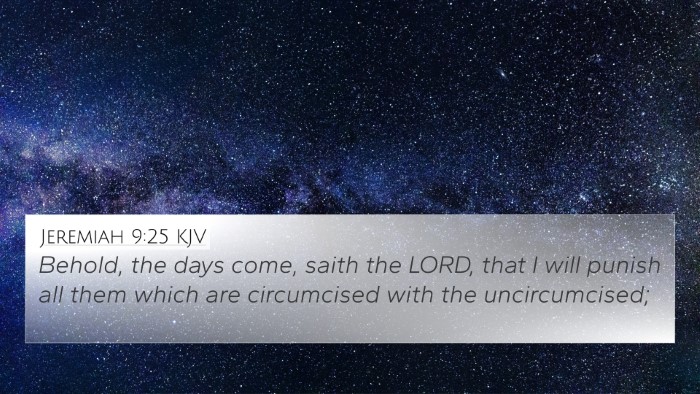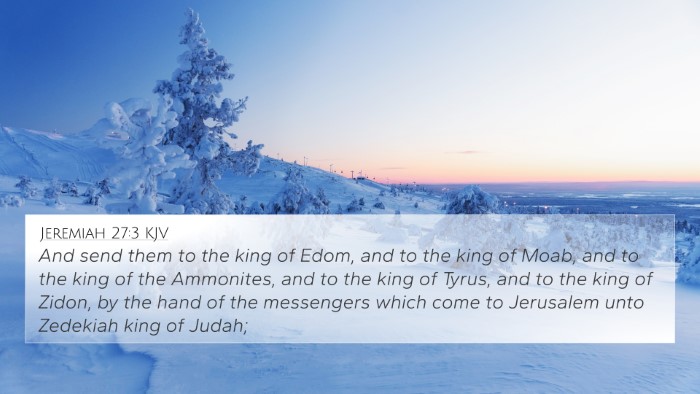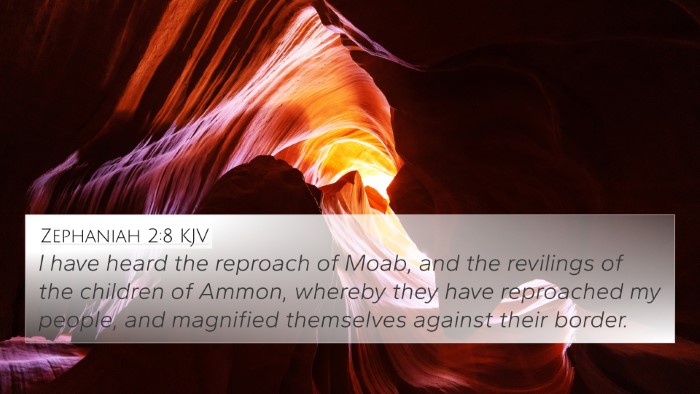Ezekiel 25:2 - Summary and Interpretation
Ezekiel 25:2 states: "Son of man, set your face against the Ammonites and prophesy against them." This powerful directive comes during a time of significant prophecy concerning various nations surrounding Israel.
In this verse, God commands Ezekiel to focus his prophetic message on the Ammonites, who were often at odds with the people of Israel. The intention here is not merely to pronounce judgment but also to highlight God's sovereignty over all nations.
Meaning and Context
The context of Ezekiel 25 involves a series of prophecies against several nations that either taunted or attacked Israel. Matthew Henry suggests that this chapter emphasizes God's judgment against those who rejoice at Israel's downfall, reinforcing that no nation will escape God's oversight.
Albert Barnes elaborates on the significance of the Ammonites, noting their historical enmity towards Israel and their false sense of security due to adjacent alliances. This brings to light a theme prevalent in the prophetic literature—the inevitability of divine judgment on those who oppose God's people.
Adam Clarke remarks on the significance of the phrase "set your face against." This is a prophetic idiom meaning to direct one’s speech or action towards a specific group, indicating God's concern about the behavior and attitudes of the Ammonites towards His chosen people.
Thematic Bible Verse Connections
To fully grasp the weight of Ezekiel 25:2, let us examine several thematic connections and cross-references that relate to this verse. The following links highlight common themes of judgment, prophecy, and God’s sovereignty:
- Jeremiah 49:1-6: Discusses God's judgment against Ammon and their subsequent fate.
- Isaiah 11:14: An allusion to the fate of the enemies of Israel, which include those from Ammon.
- Ezekiel 21:28-32: A similar prophetic declaration emphasizing God's judgment on foreign nations including Ammon.
- Psalm 83:4-8: Highlights the conspiracies against Israel from various nations, including the Ammonites.
- Zephaniah 2:8-10: A prophecy against Moab and Ammon, discussing their downfall.
- Matthew 3:7: John the Baptist warns the Pharisees about the coming judgment, echoing themes found in Ezekiel's prophecies.
- Revelation 19:15: The imagery of divine vengeance upon the nations, showcasing the finality of God’s judgment.
Bible Verse Parallels and Cross-References
Understanding the interconnections between the Old and New Testament can deepen our comprehension of prophetic literature. In Ezekiel, we see not only direct condemnation but also a portrayal of divine justice.
Moreover, the New Testament reinforces these themes. For instance, Romans 12:19 speaks about God's role in vengeance and justice: "Vengeance is mine, I will repay, says the Lord." This reflects the same principles found in Ezekiel's warnings.
Conclusion: Importance of Cross-Referencing
Ezekiel 25:2 serves as an essential reminder of God's watchfulness over all nations and His commitment to justice. By utilizing tools for Bible cross-referencing, we can appreciate the rich tapestry of Scripture that connects the prophetic messages across different books.
For those seeking deeper biblical understanding, employing a Bible concordance or cross-reference guide can be invaluable. By analyzing passages like Ezekiel 25:2 in light of surrounding texts, we can find deeper meaning and relevance.
Further Tools for Bible Study
The practice of cross-referencing Bible verses enhances understanding and reveals the interconnectedness of biblical themes. Here are some resources to assist in your study:
- Comprehensive Bible cross-reference materials that offer insights into thematic connections.
- Cross-reference Bible study methods to engage with scripture analytically.
- Tools for identifying connections between the Old and New Testament.
- Methods on how to find cross-references in the Bible for richer study.
In summary, Ezekiel 25:2 not only underscores God's judgment on the Ammonites but also calls for an understanding of the broader narrative present in Scripture. As you study, consider how these connections enrich your understanding of God's word and the unfolding of His plan through history.



